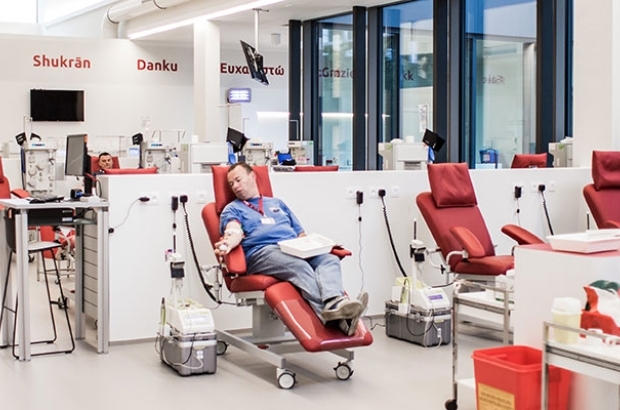- Daily & Weekly newsletters
- Buy & download The Bulletin
- Comment on our articles
Red Cross calls for more plasma donors to reduce reliance on other countries
The Belgian Red Cross has launched a campaign aiming to bring in 5,000 new plasma donors over the next three years.
Plasma, which makes up 55% of our blood and carries red and white blood cells as well as platelets around the body, is used in the treatment of patients with serious burns, haemorrhages and compromised immune systems.
There are more than 15,000 immuno-compromised patients living in Belgium whose weakened immune systems leaves them vulnerable to potentially fatal infections.
Plasma is also an essential raw material for a number of drugs used in the treatment of diseases such as haemophilia as well as severe immuno-deficiency.
Belgian Red Cross blood service spokesperson Thomas Paulus said that the government hoped to reduce the nation’s reliance on imported plasma to produce these life-saving drugs.
More than half of the plasma currently used in Belgium comes from abroad – in particular, he said, from the United States.
“There is no shortage of plasma-based drugs,” he said. “It's just that most of the plasma that is used to produce these treatments comes from abroad and that we would like to be able to make it so that all these treatments are increasingly produced with plasma collected here in Belgium."
Plasma is directly filtered from the donor’s blood in a process known as apheresis. Once the plasma has been filtered out, the remaining blood is returned to the donor’s system.
Donors must be more than 18 years old, in good health and weigh more than 50kg. Donations take about an hour and can be given every 15 days.


















